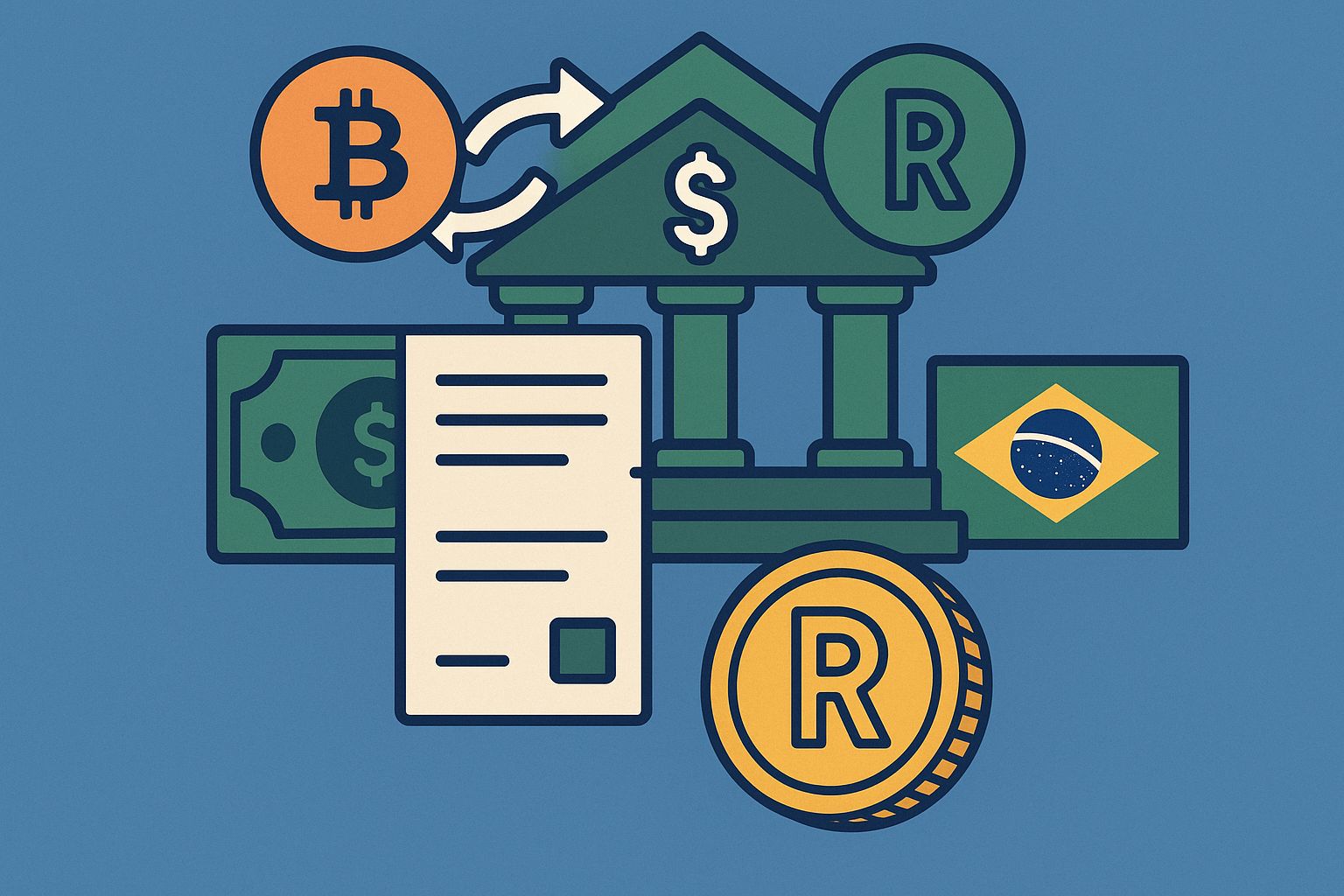
- Brazil’s central bank issued crypto rules under Resolutions 519, 520, and 521.
- Transfers with unlicensed foreign parties are capped at $100,000.
- Rules take effect on 2 February 2026, with reporting from 4 May.
Brazil has finalised a new regulatory framework that places stablecoin transactions and specific crypto wallet transfers within the scope of foreign exchange laws.
The Banco Central do Brasil (BCB) published Resolutions 519, 520, and 521 on Monday, outlining how virtual asset service providers will operate under a model similar to licensed financial institutions.
The rules establish a new legal category known as Sociedades Prestadoras de Serviços de Ativos Virtuais (SPSAVs).
These licensed firms will now face mandatory procedures for consumer protection, transaction transparency, and anti-money laundering controls.
All major entities involved in brokering, custodianship, and crypto intermediation must comply.
Implementation is phased. The rules take full effect on 2 February 2026, while mandatory reporting for capital markets and cross-border activities begins on 4 May 2026.
Stablecoins treated as foreign currency
Under Resolution 521, the BCB redefined how stablecoins operate within Brazil’s financial system. Purchases, sales, and exchanges of fiat-pegged virtual assets now qualify as foreign exchange operations.
This reclassification applies to both domestic and international transactions, including payments made using stablecoins.
Such operations will only be allowed through institutions licensed to conduct foreign exchange or those registered as SPSAVs.
Any transaction involving an unlicensed foreign counterparty will be limited to $100,000 per transfer.
These limits are designed to prevent circumvention of formal financial channels while maintaining oversight of substantial flows.
The move allows Brazil to account for stablecoin-related financial movements within its official balance-of-payments data.
These transactions were previously unrecorded in the traditional financial framework, presenting blind spots in economic data and policy planning.
Self-custody wallets brought under compliance scope
Transfers involving self-custodied wallets will also be monitored under the new system, provided they are facilitated by licensed service providers.
In such cases, the intermediary will be responsible for identifying the wallet’s owner and verifying both the origin and destination of the assets.
This applies whether or not the transaction crosses international borders.
Although the regulation does not ban self-custody, it imposes rigorous documentation requirements on interactions between personal wallets and the regulated financial ecosystem.
This adjustment addresses long-standing gaps in compliance and AML enforcement that arose from the decentralised structure of crypto networks.
By extending banking-grade controls to wallet activity, the BCB aims to create continuity in its approach to financial data integrity.
It also ensures that all transactions linked to a regulated intermediary are held to the same standard, irrespective of the custody model.
New burdens for smaller crypto firms
While the regulatory shift strengthens oversight, it could create additional strain on smaller crypto businesses.
Meeting the new legal obligations will require internal restructuring, technological upgrades, and more robust compliance teams.
These changes may disproportionately affect startups and local exchanges with limited access to capital or international compliance infrastructure.
Larger platforms and financial institutions are expected to adapt more easily, using existing legal departments and regulatory experience to meet the new demands.
As a result, the competitive environment within Brazil’s crypto space may shift, with consolidation favouring better-resourced operators.
The Brazilian crypto market is the second-largest in Latin America after Argentina.
This regulatory move signals a departure from experimental approaches and an integration of crypto into the formal structure of the financial system.
With a high percentage of crypto activity in Brazil involving stablecoins, the government has chosen to extend the legal perimeter to include digital assets traditionally seen as being outside regulated finance.
Closing the data gap in Brazil’s financial system
The BCB has framed the new rules as necessary to promote legal certainty and prevent regulatory loopholes.
By redefining stablecoin activity as a form of foreign exchange, the central bank gains visibility into financial transactions that were previously obscured.
The new framework does not eliminate the use of crypto assets, but subjects them to rules already applicable to fiat currency.
These include oversight mechanisms intended to reduce fraud, improve tax compliance, and align the treatment of crypto assets with Brazil’s financial reporting standards.
Though implementation is set for 2026, market participants are expected to begin adapting well in advance, anticipating the compliance demands of a financial system that now sees crypto as subject to the same rules as money.


